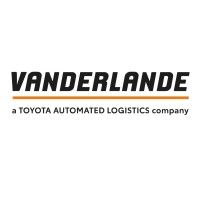Agenda Day 1
8:35 am - 8:45 am
OPENING REMARKS FROM THE CHAIRPERSON
John Wernfeldt -
MD,
Northridge Analytics
8:45 am - 9:30 am
PANEL DISCUSSION: ARCHITECTING SUCCESS - DATA ROADMAPS AND ARCHITECTURE MODELS FOR A ROBUST DATA FOUNDATION
Anton Kleymenov -
Analytics and Insights Director DACH,
Haleon
Antonios Fiala - Head of Data, Marelli
The 2024 International Data Maturity Benchmark Industry Report found that when it comes to their Data Architecture and Modelling strategy only 15% of manufacturing and logistics participants have reached the optimised level, with most responses clustering in the intermediate defined and managed levels, suggesting that companies in this sector still need to consolidate their data architecture to enhance efficiency and production management. Panellists will share insights on creating a single source of truth, integrating legacy systems with cutting-edge technologies, and balancing standardization with customization and explore the critical role of data architecture in driving innovation and efficiency. Hear different opinions on the best ways to overcome common challenges and build the architecture that supports your organization's strategic goals.
· Gain valuable insights into strategies to improve data architecture, enhance decision-making capabilities, and drive business value through effective data management.
· Understand how integrating legacy systems with modern data platforms to meet evolving expectations can bridge the gap
· Evaluate the pros and cons of different data architecture models and their suitability for various organizational structures and scales
· Discover the best way to solve the standardisation dilemma to find the right balance between standardisation and customization in data architecture
Compare and contrast the efficiency of traditional long-term planning with the more agile, short-term approaches
9:30 am - 10:00 am
AGENTIC BI: THE NEXT STEP FOR BUSINESS INTELLIGENCE
Marcos Monteiro -
CEO & Co-Founder,
Veezoo
With AI models like DeepSeek R1 and OpenAI’s o1/o3 learning how to reason, Business Intelligence is on the verge of a paradigm shift. Once synonymous with dashboarding — or “PowerPoint for Data”— BI is now evolving into a system where AI actively helps us answer our most business-critical questions.
As AI advances, it won’t just assist—it will ask thousands of questions in the time it takes a human to ask one. But will we be able to trust its results?
- Hear how Veezoo are tackling the challenge of enabling thousands of business users at major companies to receive insights they can trust with the help of AI.
- Learn why dashboards aren’t enough for a truly data-driven company.
- Discover that trustworthy AI needs more than “throwing a model on top of the warehouse”.
11:50 am - 12:20 pm
MASTERING DATA GOVERNANCE - UNLEASHING ACCOUNTABILITY FOR GLOBAL SUCCESS
In the complex landscape of global organizations, effective data governance and stewardship are paramount for maintaining a competitive edge and ensuring regulatory compliance. This session delves into innovative approaches to implementing robust data governance frameworks, with a special focus on the critical role of data stewards in driving accountability and data quality. Explore how leading companies are cultivating a new generation of data stewards who act as bridges between technical and business teams, championing data-driven decision-making across diverse international environments. Drawing from real-world case studies, discuss practical strategies for overcoming common challenges in data stewardship, balancing centralized governance with local needs, and measuring the tangible impact of these efforts on data quality and business outcomes. Gain valuable insights into transforming their data governance practices, empowering data stewards, and fostering a culture of data responsibility that drives global success.
- Discover how to strike the perfect balance between centralized and federated data governance models in global organizations, ensuring consistency while allowing for regional flexibility.
- Learn effective strategies for implementing data stewardship and ownership across departments and regions, overcoming executive resistance and integrating data responsibilities into existing roles.
- Understand how to create and leverage performance metrics and incentives to drive continuous improvements in data quality and foster a culture of accountability.
- Uncover best practices for adapting data governance frameworks to diverse cultural and regulatory environments while maintaining global standards and compliance
12:20 pm - 12:50 pm
FROM DATA DELUGE TO DOWNTIME PREVENTION- MASTERING PREDICTIVE MAINTENANCE ANALYTICS
This session explores the critical role of data and analytics in implementing effective predictive maintenance strategies. As manufacturers collect vast amounts of sensor data from machinery, they face significant challenges in data management and analysis. Discuss practical approaches to overcoming these hurdles, leveraging advanced analytics and AI to transform raw data into actionable insights that prevent downtime and optimise maintenance schedules.
· Examine the architectural considerations for handling high-volume, high-velocity sensor data.
· Discover approaches to building a robust data infrastructure that supports real-time analytics and enables rapid decision-making for maintenance operations
· Explore the applications of machine learning and AI techniques for developing accurate predictive maintenance models
Discuss the best methods for quantifying the impact of predictive maintenance initiatives and demonstrating ROI to stakeholders
12:50 pm - 1:50 pm
LUNCH
2:25 pm - 2:45 pm
HOT TOPIC CASE STUDY PRESENTATION: QUANTUM COFFEE BREAKS AND EDGE-POWERED MEETINGS - OFFICE 2040
Dennis van Bregt -
Head of data, analytics & AI,
allnex
Imagine an office in 2040, where AI seamlessly assists us at every step. But how do we reach this future? The journey begins with a solid foundation: DATA.
Current Challenges: Today, we face numerous obstacles in data management. Manual processes, data silos, and quality issues consume hundreds of people-days each month. These inefficiencies hinder our ability to make informed decisions and innovate effectively.
The Solution: Robust Data Platform A comprehensive data platform can transform our operations by:
· Simplifying Data Management: Streamlining data collection, storage, and integration.
· Enhancing Data Quality: Ensuring accuracy and consistency across all data sources.
· Enabling Advanced Analytics: Leveraging AI and machine learning for deeper insights and predictive capabilities.
· Fostering Innovation: Providing the tools and infrastructure needed for continuous improvement and competitive advantage.
Future Vision: With a strong data foundation, we can harness the power of AI to automate tasks, generate real-time insights, and drive strategic decisions. This journey not only improves efficiency but also positions us to lead in a data-driven world.
2:45 pm - 3:05 pm
HOT TOPIC CASE STUDY PRESENTATION: THE JOURNEY TO DATA MESH- IMPLEMENTATION STRATEGIES AND LESSONS LEARNED
Adina Manisor -
Head of Group Data and Artificial Intelligence Product,
Electrolux
In today's manufacturing and logistics landscape, organisations are increasingly adopting data mesh approaches to overcome the limitations of traditional hierarchical data structures. This session explores real-world implementation strategies and valuable lessons learned from companies transitioning to domain-oriented data architectures. Examine how organisations are grouping data by domain and treating each domain as a profit and loss centre to demonstrate both cost and value.
3:05 pm - 3:25 pm
HOT TOPIC PRESENTATION: THE RISE OF THE PURPLE PEOPLE
The rush to adopt (agentic) AI across manufacturing and logistics organizations often leads to fragmented implementations, vendor proliferation, and scattered use cases that fail to deliver enterprise value. This interactive session explores how to take a strategic, governance-driven approach to AI deployment that focuses resources where they matter most while creating scalable foundations for long-term success.
5:15 pm - 5:45 pm
PANEL DISCUSSION AND ROUNDTABLES: UNIFYING THE SUPPLY CHAIN - HARNESSING DATA INTEGRATION FOR COMPETITIVE ADVANTAGE
Hanna Rivera -
Head of Marketing and Sales Data,
Hilti
Ivan Branco - Head of Information Management, BI and Analytics, Volvo Group Trucks Operations
Rafał Góreczny - Director - Data Governance, GE HealthCare
Seamless data integration across the supply chain is no longer a luxury—it's a necessity. This session explores how leading organizations are overcoming legacy system challenges, breaking down data silos, and leveraging advanced analytics to create a unified view of their supply chain. Examine real-world case studies, discuss practical strategies for improving data quality and completeness, and explore how emerging technologies like AI and cloud computing are reshaping supply chain data management. Join us to learn how you can transform your supply chain data into a powerful asset for driving efficiency, resilience, and innovation.
· Explore strategies for integrating data from disparate legacy systems across the supply chain.
· Discuss the challenges of harmonizing data from multiple countries and business units, and share successful approaches to creating a centralized data lake that can support advanced analytics and decision-making
· Examine practical methods for improving data quality and completeness across supply chain operations
Discover innovative approaches to incentivize data accuracy, implement quality controls, and hold data owners accountable for the integrity of their data assets























